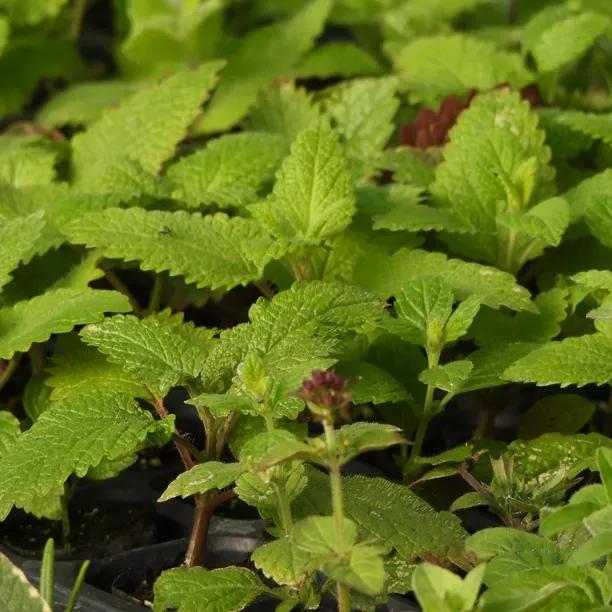Lemon Balm Plants
The details
Melissa officinalis
Pot Grown Herbs- Height: 60 cm
- Spread: 40 cm
- Colour: green foliage, creamy flowers
- Flowers: Summer
- Uses: culinary, herb garden
- Spacing: 45 cm
- Scent: citrus/lemon
- Habit: upright
- Life: hardy perennial
Recommended extras
Description
Melissa officinalis
Lemon balm's crowning glory is its powerful lemony smell when its leaves are crushed. Lemon balm is used in herbal teas and fruit salads not just for its extraordinarily delicious taste but for its calming properties. Looking not unlike a mint plant, lemon balm has a bushy but upright habit with bright green medium-sized leaves that are oval in shape, marginally toothed and with a slightly furry texture. In the summer the small, creamy flowers are pretty, prolific and are ambrosia for bees. Browse our other herbs and vegetables.
A balm for the garden and soul
Lemon balm will grow in almost any soil or position, but it prefers a fairly rich moist soil with lots of sun but midday shade. In fact, it is so easygoing that it can slightly take over if you are not careful and do not trim lightly around the edges of the plant to keep it in check - especially after flowering to prevent it self-seeding. This promiscuous habit can be advantageous should you wish to use lemon balm as a ground cover. Otherwise, it makes an unusual herb for your herb garden; perhaps its best use is to attract pollinators, especially honey bees to your garden. Because of its nectar-rich flowers, try growing it in an orchard or close to a beehive. It does not taste good when cooked but can be combined with spearmint to make a wonderful tea. An ancient medicinal herb for longevity, it has been considered for centuries as a tonic for melancholy and aromatherapists still use it today to alleviate depression.
Lemon Balm Features
- Height: 60 cm
- Spread: 40 - 50 cm
- Colour: green foliage, small creamy flowers
- Flowers: Summer
- Uses: culinary, herb garden, ground cover
- Spacing: 45 cm
- Scent: citrus/lemon
- Habit: upright/forms a mound
- Life: hardy perennial
Lemon Balm Trivia
The name Melissa is a popular girl's name that comes from the Greek for honey bee, which love this plant's flowers. The Greeks dedicated this herb to the goddess Artemis (Diana) and would put sprigs of it in an empty hive in the hopes that it would attract a swarm of bees. This tradition continued to medieval times in Europe when people planted lemon balm close to hives because they observed that this would keep the bee swarms coming back. Used medicinally, the leaves should be used fresh or frozen in tea to relieve headaches and to restore memory.


